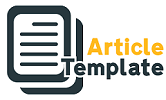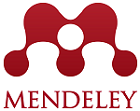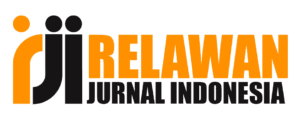Keterbukaan Informasi Publik: Studi Pada Keberhasilan Pemerintah Daerah Kabupaten Luwu Utara 2019
Abstract
Public information disclosure is an important aspect of realizing a good governance system. The Indonesian government, through the Law on Public Information Disclosure, continues to strive so that all public agencies can provide easy access to information. This study uses a qualitative approach with data sources derived from documentation studies, news sites, and websites. The results of this study indicate that there is a fairly positive trend in which the North Luwu Regency Government has managed to obtain the highest score for three (3) consecutive years, namely 2017, 2018, and 2019 for information disclosure with the predicate Towards Informative. This achievement is influenced by the performance of the government which continues to make various efforts, namely, socialization and training, replication of innovations, utilization of website-based networks, and the availability of Command Center facilities. This achievement is also considered to affect maximum results in the future to obtain the title of Informative in the aspect of public information disclosure
References
Ahmadi, D., & Rachmiatie, A. (2019). Public Participation Model for Public Information Disclosure. Jurnal Komunikasi: Malaysian Journal of Communication, 35(4).
Awang, Azam. (2010). Implementasi Pemberdayaan Pemerintah Desa. Yogyakarta: Pustaka Pelajar
Berliner, D., Bagozzi, B. E., & Palmer-Rubin, B. (2018). What information do citizens want? Evidence from one million information requests in Mexico. World Development, 109, 222-235.
Deng, J., Zhang, N., Ahmad, F., & Draz, M. U. (2019). Local government competition, environmental regulation intensity and regional innovation performance: An empirical investigation of Chinese provinces. International journal of environmental research and public health, 16(12), 2130.
Elidjen, A. P. (2017). Evaluating the Implementation of Public Information Disclosure on the Official Website of Indonesian Ministries. Procedia computer science, 116, 54-60.
Fudin, M. R., & Rahayu, A. M. (2019). Public participation and the disclosure of public information to achieve good governance. In Conference paper. EAI.
ICEL. (2019). Masih Rendahnya Implementasi Keterbukaan Informasi Publik Dalam Sektor Hutan Dan Lahan. Akses pada 10 Oktober 2020. Dari situs file:///C:/Users/ACER/Downloads/233.html
Indah, T., & Hariyanti, P. (2018). Implementasi kebijakan keterbukaan informasi publik pada dinas kominfo kota tasikmalaya. Jurnal Komunikasi, 12(2), 127-140.
Kneuer, M. (2016). E-democracy: A new challenge for measuring democracy. International Political Science Review, 37(5), 666-678.
Komisi Informasi Pusat. (2008). UU Nomor 14 Tahun 2008: Tentang Keterbukaan Informasi Publik. Akses pada 10 Oktober 2020. https://komisiinformasi.go.id/?p=1832
Koran Seruya. (2019). Monev 2019, KIP Sulsel: 12 Tahun UU KIP, Belum Ada Satupun Masuk Kategori ‘Informatif’, Lutra Tertinggi. (koranseruya.com). Akses pada 11 Oktober 2020. Dari situs https://koranseruya.com/monev-2019-kip-sulsel-12-tahun-uu-kip-belum-ada-satupun-masuk-kategori-informatif-lutra-tertinggi.html
Lubis, M., Kusumasari, T. F., & Hakim, L. (2018). The Indonesia Public Information Disclosure Act (UU-KIP): Its Challenges and Responses. International Journal of Electrical & Computer Engineering (2088-8708), 8(1).
Mujiburrahman, M., Suryadi, B., & Budhi, S. (2019). Public Information Disclosure Policy Implementation in Department Of Information and Communication Coding In North Barito District, Central Kalimantan Province, Indonesia. European Journal of Political Science Studies.
Nurdiansyah, E. (2016). Keterbukaan Informasi Publik Sebagai Upaya Mewujudkan Transparansi bagi Masyarakat. Jurnal Bhinneka Tunggal Ika, 3(2), 147-151.
OBI, Toshio. (2015). International E-Government Ranking Survey. Waseda University. Akses pada Oktober, 2020 dari https://idg-waseda.jp/pdf/2015_E-Gov_Press_Release.pdf
Pojok Sulsel. (2018). Terbaik dalam Keterbukaan Informasi, Diskominfo Lutra Gelar Bimtek bagi PPID. (sulsel.pojoksatu.id). Akses pada 11 Oktober 2020. Dari situs https://sulsel.pojoksatu.id/baca/terbaik-keterbukaan-informasi-diskominfo-lutra-gelar-bimtek-bagi-ppid
Portal Luwu Utara. (2019). Cetak Hattrick, Luwu Utara Terbaik Keterbukaan Informasi Publik di Sulsel. (portal.luwuutarakab.go.id). Akses pada 10 Oktober 2020. file:///C:/Users/ACER/Downloads/Luwu%20Utara%20_%20Website%20Resmi%20Kabupaten%20Luwu%20Utara.html
Provinsi Sulawesi Selatan. (2017). Lutra Tertinggi Lutra Peringkat Pertama Keterbukaan Informasi. (koranseruya.com). Akses pada 11 Oktober 2020. Dari situs https://sulselprov.go.id/welcome/post/lutra-peringkat-pertama-keterbukaan-informasi
Sandfort, J. R., & Moulton, S. (2020). Replication or Innovation? Structuration in Policy Implementation. Perspectives on Public Management and Governance, 3(2), 141-154.
Setiaman, A., Sugiana, D., & Mahameruaji, J. N. (2013). Implementasi kebijakan keterbukaan informasi publik. Jurnal Kajian Komunikasi, 1(2), 196-205.
Suhendar, A. (2020). Keterbukaan Informasi Publik Bentuk Keseriusan Pemerintah Menuju Good Governance (Implementasi Undang Undang Nomor 14 Tahun 2008). Jurnal Wacana Kinerja: Kajian Praktis-Akademis Kinerja dan Administrasi Pelayanan Publik, 13(2), 243-251.
Tawai, A. (2020). The Role of E-Government Analysis in Supporting Public Trust and Information Disclosure in the City Of Kendari. Dia: Jurnal Administrasi Publik, 18(1), 112-120.
Zulaikha, Z., & Paribrata, A. I. (2017). Implementasi Kebijakan Keterbukaan Informasi Publik di Jawa Timur Tahun 2016. Jurnal Studi Komunikasi, 1(2), 131-162.
Copyright (c) 2020 Journal of Governance and Local Politics

This work is licensed under a Creative Commons Attribution-NonCommercial-NoDerivatives 4.0 International License.










